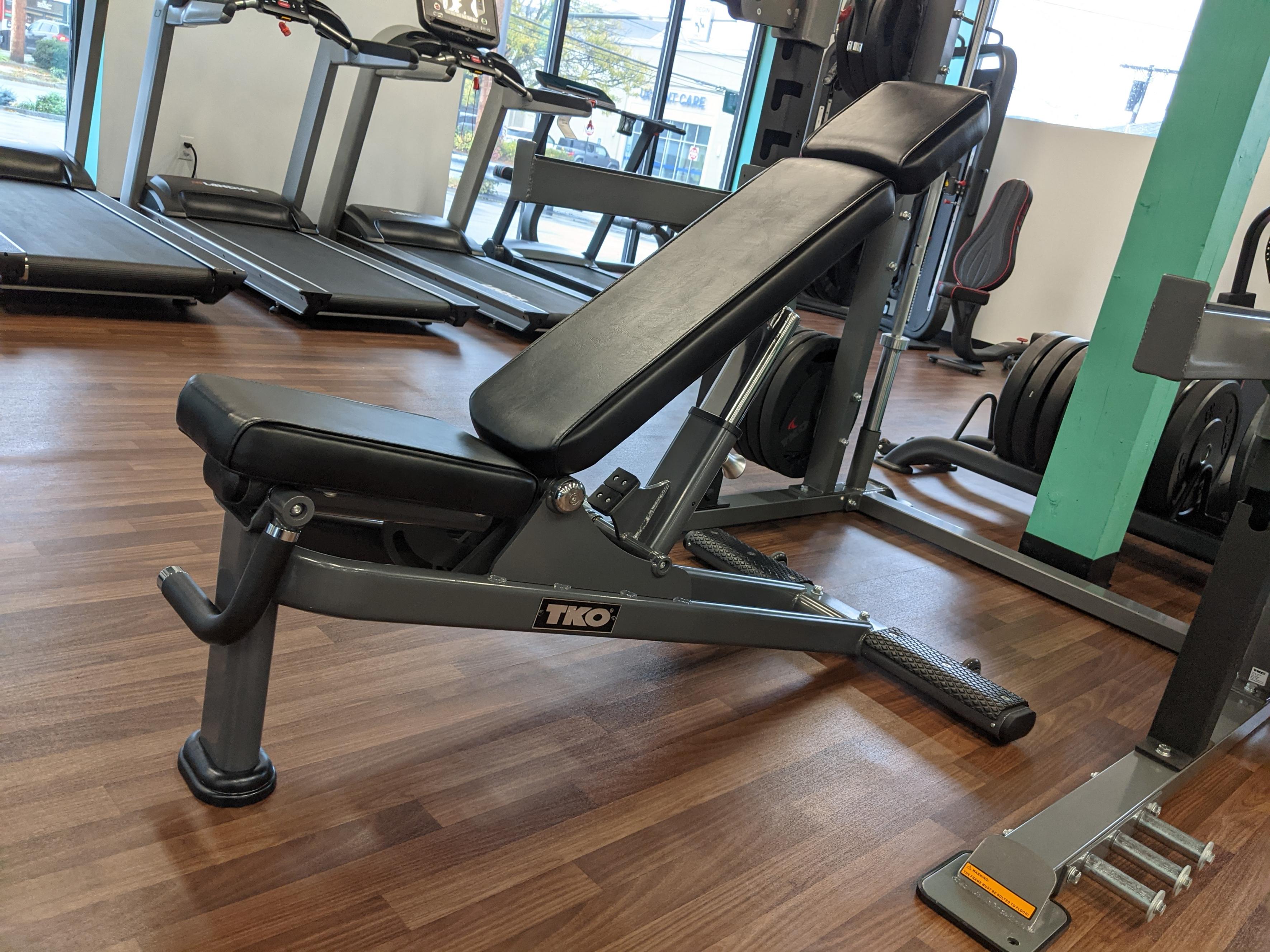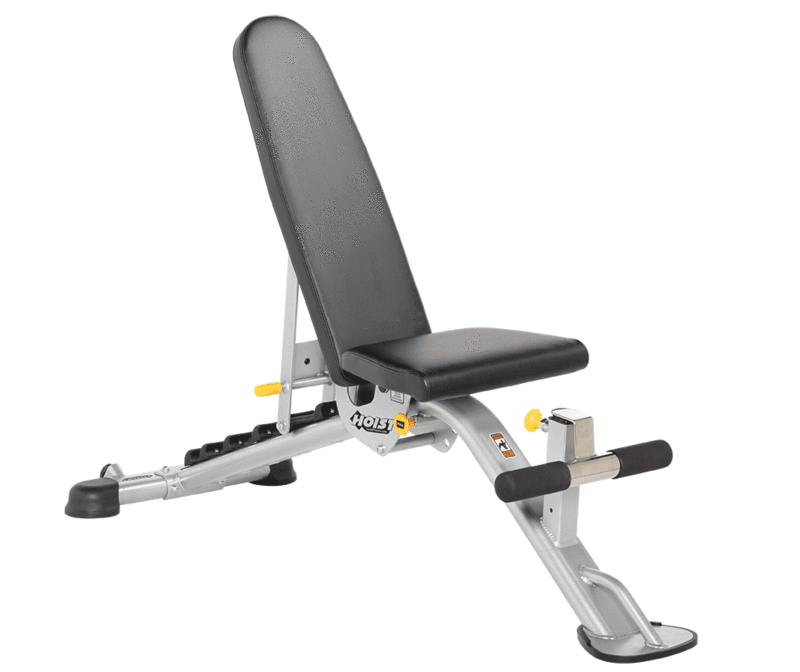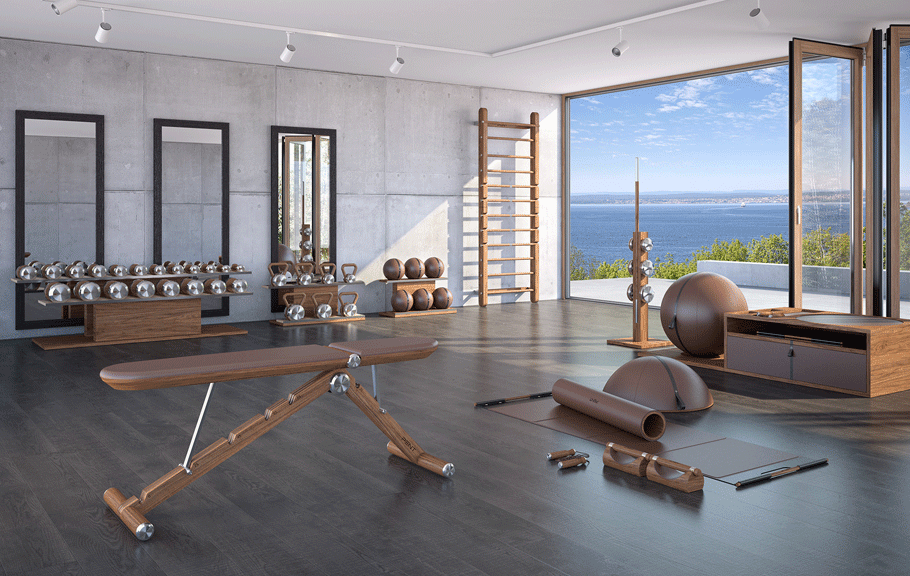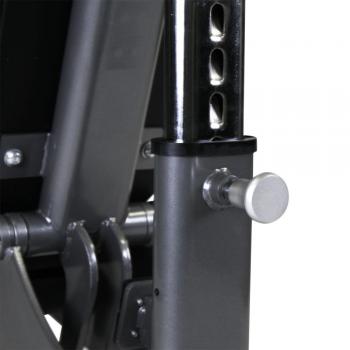So once you've designed well over a thousand fitness spaces, and sold tens of millions if not hundreds of millions of dollars of fitness equipment, there are definitely some trends that stick out.
A good bench and a set of dumbbells are where you should almost always start. Whether you're getting the very basics for your 14-year-old children starting out or re-creating a specialty spa gym in your whole basement, the bench and dumbbells are always part of the equation. A good bench can be used in a cage, a rack, a squat stand, or a Smith Machine, as well. A bad bench is dangerous, often with misdrilled holes, poor components, and bad biomechanics.
I've already done a recent blog on the different types of dumbbells and why they cost such wildly different amounts. This blog is particularly about the staple of every lifting program, the utility bench. And since that blog got a lot of interest, ConnectFit is going to try to help everyone by doing the same thing and help everyone get a better bench!
.jpeg?width=225&name=images%20(3).jpeg)
By and large, benches come in four different quality levels and three different styles. On top of that, there are other considerations within these styles that will affect which bench is right, and what would be a waste of time.
The very first consideration is that you want to be able to try this bench before purchasing it, if at all possible. There are a million online sites that try to sell you their junk that invariably will upset the buyer eventually. Everything looks good online, and everybody's website makes them look like their product is heavy-duty, but that's just typical marketing.
Now the four different quality levels are literally based on the level of warranty the bench carries.
There are commercial benches, which are warrantied to go into a full dues-paying facility like a lifetime fitness, and equinox, or a gold's gym. Ultra-robust and safe, built for all different sized users. ConnectFit sells Hoist, Cybex, Hudson Steel, Nautilus, Freemotion, Eleiko, and TKO commercial benches. This commercial Multiangle bench from TKO is extremely popular. This Manhattan Bench from Hudson is also a favorite.


And there are light commercial products, that are warrantied to go into police stations, fire stations, condo complexes, limited use training studios, and CrossFit gyms. These are our most popular home benches, as well. They have more bolts and fewer welds than a commercial bench, but are still high quality, and often easier to move around. Our most popular here is the Hoist HF-5165, which has a foot holder for incline work and for the decline work, and tales attachments for a leg extension and a preacher curl.


Below that are residential quality benches, and there are actually two levels of these. There are decently made residential benches that also carry very limited light commercial warranties but are definitely made for homes, and then there are those wonderful internet department store specials made of tinfoil and with spot welding and smaller bolts. For a good residential bench, we like the BodyCraft F605 here.
Now in terms of price, ConnectFit provides utility benches as low as $450, and as much as $5980. And generally, commercial benches are $800 and up, real light-commercial benches are $500 and up, good residential benches are $350 and up. The differences are really based on the quality of the steel, the gauge of the steel, the quality of the padding and how it's attached to the frame, welds versus bolts, because welds are stronger than bolts, and the adjustment type for changing angle.

And the three basic styles of benches are flat, flat incline, and flat, incline, and decline. That last category is normally shortened into FID bench. Now you can toss around that term! I rarely recommend a flat bench for home use, as it is much less versatile. Decline is useful, but not everyone does decline bench work.
How a bench adjusts is important. The most basic type of adjustment for the angle is called a ladder, which is the least expensive. A curved 'banana cam' with a pin is a popular, simple version, and a sliding pop-pin is the most elegant.

Obviously, most full commercial benches are much more stable, and fit a larger range of people. They have a much longer back pad and will normally allow for even a taller person to rest their head on the back of the pad. This is another reason you always want to try the bench before you buy it, to make sure it's long enough to rest your head while lifting.
Also, how far off the ground the bench is, which is called the rise of the bench, is very important. International powerlifting standards normally go with a 16 and 1/2 in rise, but it's very important you try the bench and make sure your feet can be stabilized while you're lifting. If it's too high off the ground and you can't stabilize properly you can really hurt yourself using the bench. Again, this is why it is SO CRUCIAL TO TRY THE BENCH before purchase.
People would think that the FID bench is always the best way to go, and for a lot of people it is, but the more adjustments the bench has, the more it costs, and the more it can be screwed up by bad design. Also, some FID benches are built to take attachments like sit up attachments, or preacher curl attachments, which necessitate a much wider pad at the end. And while this allows them to be used as a situp bench, it can make them uncomfortable to some people as a heavy dumbbell bench.
Also, an FID bench will be longer and harder to move.
Also, an FID bench will be longer and harder to move.
Also, there are some benches that try to allow you to do decline work from the top of the headrest, and we've heard of quite a few clients getting hurt with these so we don't often recommend it.
Our best selling benches for home are normally the light commercial benches, as they are still super stable and safe, and fit most people, but don't carry an unnecessarily high price tag.
I truly hope this view into my years of gym design was helpful. I want everyone to stay in the best health possible. And if you have any other questions or want to talk about what bench may be best for them, click here!
I truly hope this view into my years of gym design was helpful. I want everyone to stay in the best health possible. And if you have any other questions or want to talk about what bench may be best for them, click here!




COMMENTS